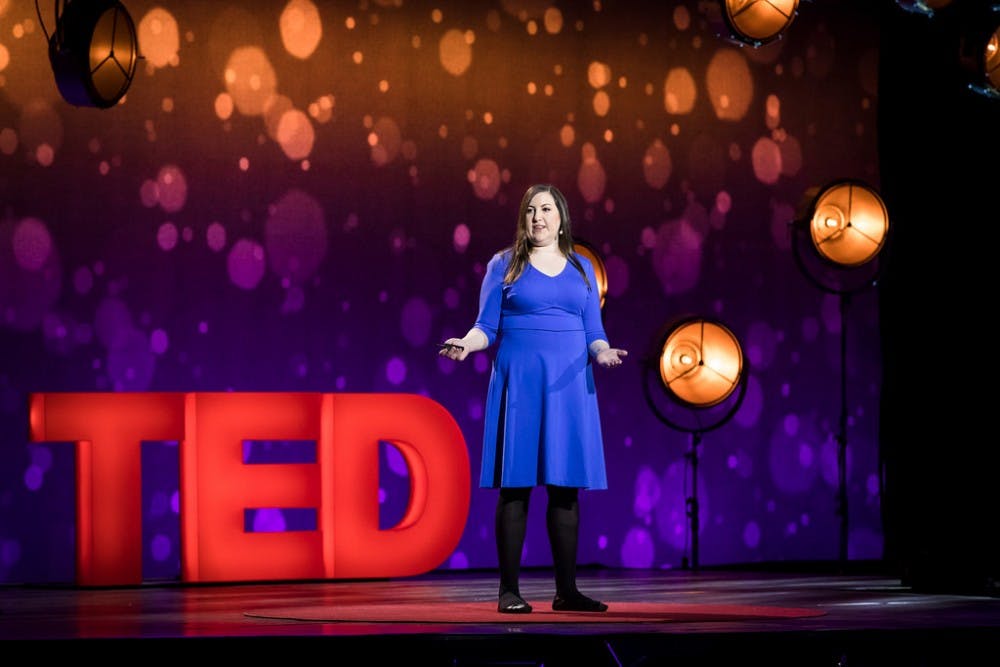
Photo by TED Conference / CC 2.0
A Penn professor's research on extinction is roaring into the spotlight as anxiety surrounding climate change has grown and more pundits consider the prospect of humans ushering in our sixth global-level extinction.
Lauren Sallan, the Martin Meyerson assistant professor of Interdisciplinary Studies, is on the front lines of this issue, conducting research on how environmental and ecological changes can affect evolution.
One of Sallan's specialties is studying mass extinction events, or periods in Earth's history when many plant and animal species become extinct in a short time. By analyzing previous extinction events, Sallan has found that smaller animals tend to survive more effectively than their larger-bodied counterparts, which tend to die off due to slower reproductive rates and greater food requirements.
Fossil evidence of the mass-extinction that occurred at the end of the Devonian geologic period, which refers to a timephase 359 million years ago, shows that even 36 million years after the event, most animals were still less than one meter long.
Sallan views her research as an important predictor of what a human caused extinction could do to biodiversity.
"By analyzing fossil records of previous extinctions, we can see all of the different outcomes and understand the mechanisms and results of future extinctions," she said in an interview with The Daily Pennsylvanian.
Sallan's research into previous extinctions has gained significant traction in the scientific community. As a member of the 2017 class of TED fellows, Sallan gave a TED talk on marine evolution.
Her work regarding mass extinctions has been covered by numerous publications, including The New York Times, Forbes magazine and Scientific American.
"The changes of Earth's systems happen over long periods of time and to understand what might happen, we have to look at the past,” says Penn professor Hermann W. Pfefferkorn, who added that Sallan's research, which looks into historical examples of extinction, has become increasingly important for this reason.
"Humans are already a geological force," he said.
The Daily Pennsylvanian is an independent, student-run newspaper. Please consider making a donation to support the coverage that shapes the University. Your generosity ensures a future of strong journalism at Penn.
Donate







